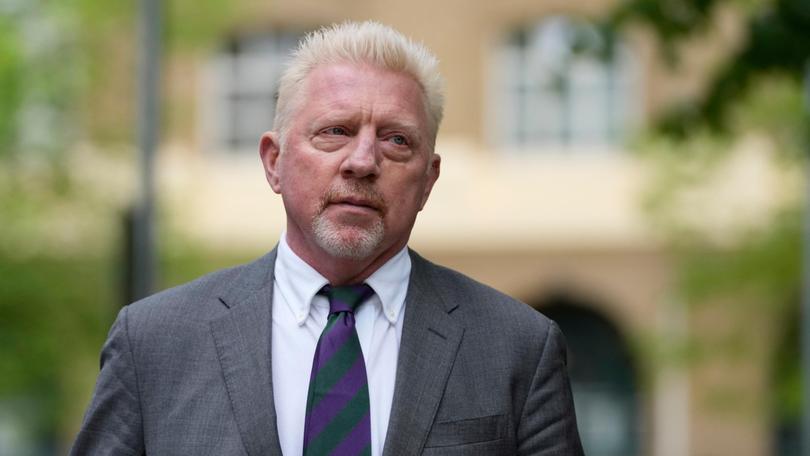ANDREW MILLER: Boris Becker the perfect example of why not to donate DNA
ANDREW MILLER: Boris Becker — professional tennis star and tax evader — is the archetype of a reluctant father.

Boris Becker — professional tennis star and tax evader — is the archetype of a reluctant father.
In 2000 he spectacularly accused a woman of “samenraub” — the Germans have the best words, this one meaning “robbery of seed”. But later conceded his daughter was conceived in the broom closet of a London restaurant. Uber Eats would have been a better option, they might nick a few of your chips, but you don’t have to pay child support.
It is established law that we do not own our body’s parts or humble products, to the chagrin of witless men looking for ever-more pathetic ways to avoid responsibility for their trouser actions.
Sign up to The Nightly's newsletters.
Get the first look at the digital newspaper, curated daily stories and breaking headlines delivered to your inbox.
By continuing you agree to our Terms and Privacy Policy.DNA cannot lie — it is simply another way of storing information, and while we should keep our genome to ourselves, we don’t own it.
So much information has been recorded, never to be seen again until now. With massive digital storage, the pendulum is swinging toward open access. With that comes the lucrative sport of data mining, and as we know — wherever there is mining, there are thieves.
All the records that ever have been, and ever will be, are now up for grabs. Artificial intelligence scrapers have already nabbed all the works available on the internet, and they are planning to sell it back to us.
Massive organisations, with whole divisions devoted to cybersecurity, are unable to contain their information securely, so smaller companies and individuals have no chance.
There are interesting new perils now, with the sharing of genetic blueprints becoming popular.
Before there was you, your deoxyribonucleic acid code — DNA — was just a glint in your mum’s eye. Despite all the odds in the universe rendering your existence unlikely, here you sit, trying not to picture the whole mum, dad and conception business.
DNA is just encoded data — like a hair, but ridiculously thin and much longer. Each and every nucleated cell in your body — more than 10 trillion of them — has about 6 feet of DNA strands coiled tightly inside. Each copy is equivalent to a million pages of printed text. Our minds can’t process numbers like these.
We have learnt, from our inexplicable true-crime obsession, that it is nigh-impossible to leave a crime scene without dropping a DNA calling card. Forensic technology has forever changed the landscape of policing — and TV — but now voluntary registers of DNA have come along, giving detectives a new tool.
Just last week they identified a mystery man who died 26 years ago. His DNA profile was matched to a family on GEDmatch.com after enough people had registered their own samples in the pursuit of genealogy. In the United States they caught the Golden State killer the same way.
Every family has that one aunt with a tree in an exercise book showing the grandparents, cousins, births, deaths and marriages, going back five or so generations. These endeavours always leave us wanting; a certificate with spidery ink is a colourless, two-dimensional view of our alleged ancestors.
We cannot know who they cried for, just from cold administrative details and an occasional letter — even if there are tear stains on the page.
In seeking scientific answers, we should expect to find ordinary, inconvenient things. We may learn that we have genetic tendencies toward disease, as a result of our imperfect genome. Our fathers are not always who we, or they, thought they were, and the suspiciously scarce, but oft-implicated milkmen are not the worst option by far.
The police are reportedly asking us to register our DNA to help solve crimes, but I will be saying “yeah-nah” for now. The online companies who want me to trust them with my sample have far too much to gain from that data for my liking, even if they can keep it secure.
Some things are best kept under tight control. Isn’t that right, Boris?
